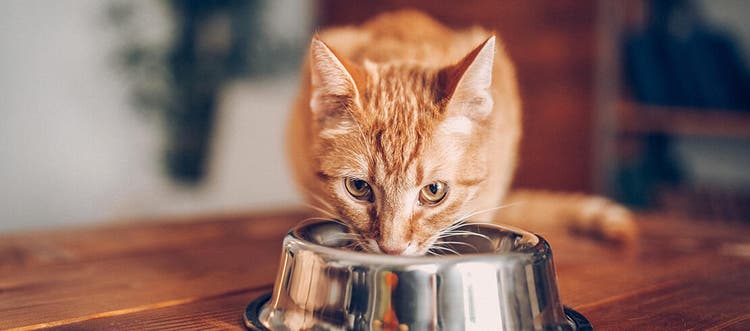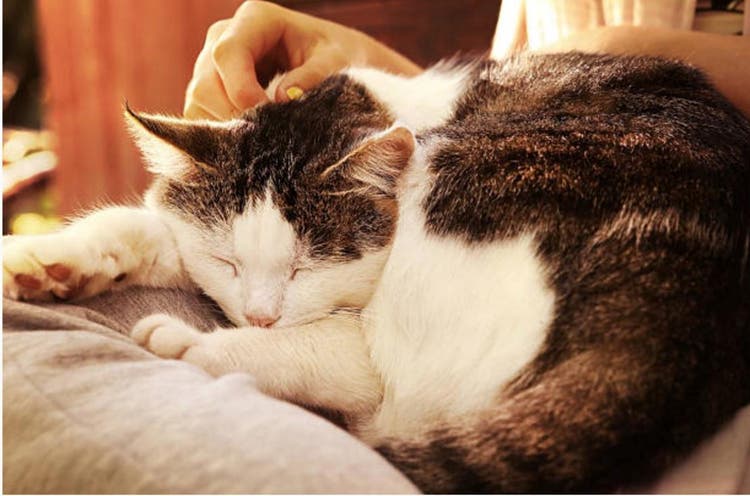Reviewed by Corinna Klupiec BVSc PhD Grad Cert Ed (Higher) and Dr Abbie Lam DVM
Roundworms are a common parasite in cats and can affect felines of any age. Learn how to spot the symptoms of roundworm – and prevent and treat this parasite –with our comprehensive FAQ.
Roundworm in cats: common questions and answers
What are roundworms?
Roundworms are one of the most common types of worms found in domestic cats; they live in an infected cat's small intestine. Because roundworms are easily spread and can be contracted in several ways, it's likely that your cat will become infected with this intestinal parasite at some time in their life.
What do roundworms look like?
Roundworms are white, cylindrical and resemble pieces of spaghetti. The thousands of eggs that they produce are passed in the cat's faeces. These eggs are tiny and can only be seen under a microscope.
How do cats get roundworms?
Cats can get roundworms in three different ways:
- Roundworm eggs are passed in the faeces of infected cats and can lie dormant in litter trays, sandpits and soil for years. These eggs can then infect other cats if ingested, often when grooming themselves after walking or lying in contaminated soil, sand or litter.
- Roundworm eggs can be picked up when cats catch and eat infected rodents, cockroaches and birds.
- When female cats are infected with roundworm late in pregnancy, larvae can travel to the mammary glands and infect kittens while they feed on their mother's milk. This is why young kittens often have worms even when they've never been outside.
What are the symptoms of roundworm infection?
An adult cat with roundworms will often show no ill effects, although vomiting and diarrhoea can occur on occassion, and you may also see roundworms in your cat's faeces. Kittens are more at risk and may show a variety of symptoms including pot-bellied appearance, vomiting, diarrhoea, slow growth and dull coat. If you suspect your cat may have roundworm, contact your vet.
Can humans get roundworms?
Humans can also be affected by roundworms. Cat roundworms can cause a disease in people called toxocariasis. Although rare, people can accidentally ingest roundworm eggs - for example, if they touch contaminated soil or faeces and do not wash their hands thoroughly afterwards. If this happens, the larvae of the parasite can migrate into our tissues, potentially causing serious disease. In some cases, the roundworm larvae end up in the eyes, causing a condition called ocular larva migrans, which can lead to blindness. They can also cause damage in the brain and lungs.
How can I treat and prevent roundworms?
Many kittens are infected with roundworm from their mother's milk, so it's important to start treating them early. MilbemaxTM tablets are an example of a popular product for worming cats including young kittens and has been trusted by vets for over 20 years. It can be used in kittens from 6 weeks of age and 500g in weight.
From 9 weeks of age, you can use AdvocateTM a convenient monthly spot-on that protects cats against roundworms as well as hookworms, heartworm, lungworm, fleas and ear mites.
It's always important to read the product label for full instructions before using any product on your cat.
What other measures can I take to help reduce the risk of roundworm?
Practising good hygiene can help reduce the risks to both pets and people:
- Pick up your cat's faeces from the backyard, and regularly clean your cat's litter box.
- Wash your hands after cleaning up after your cat.
- Wash your cat's bedding regularly, along with any blankets or cushions your cat uses for sleeping or grooming.









